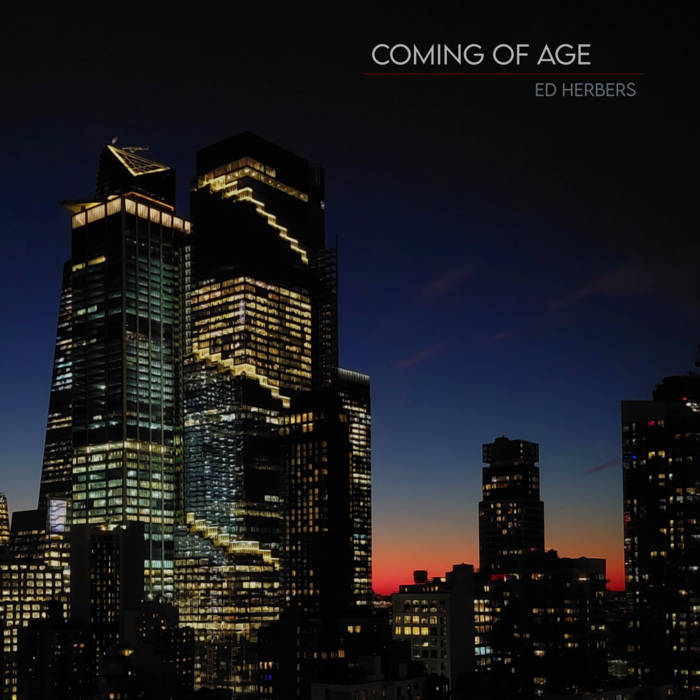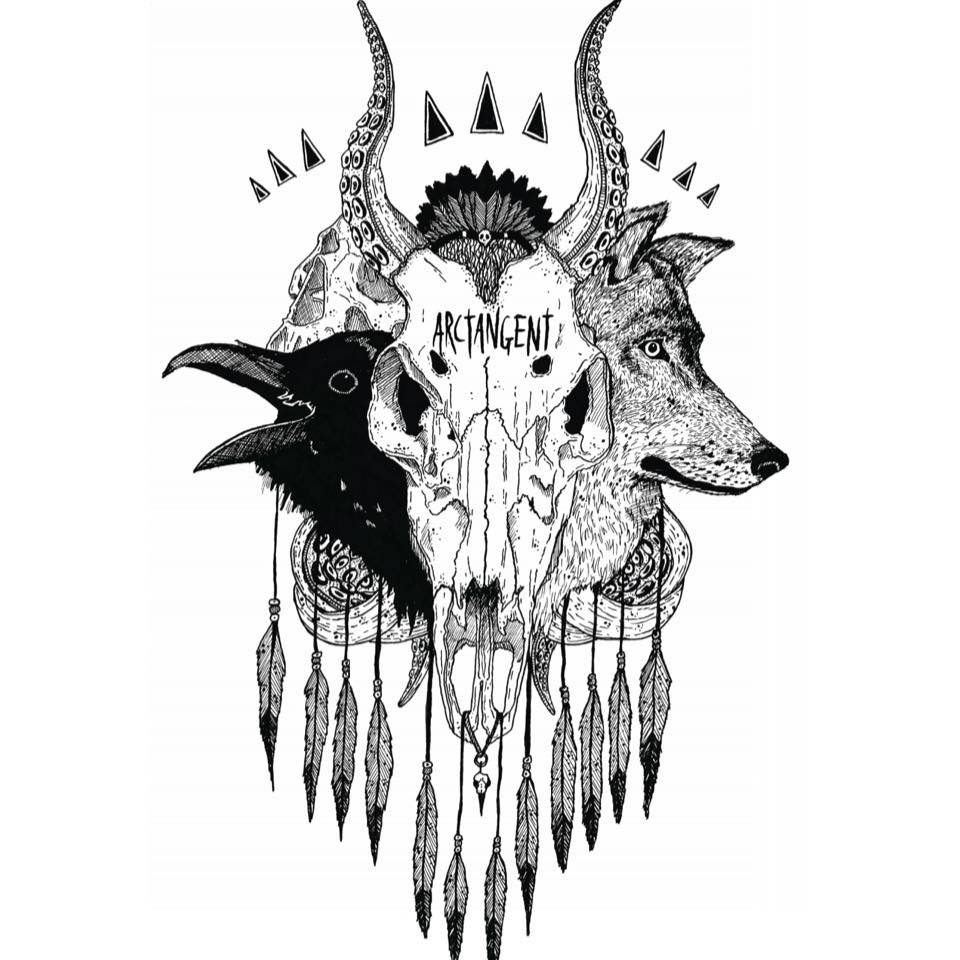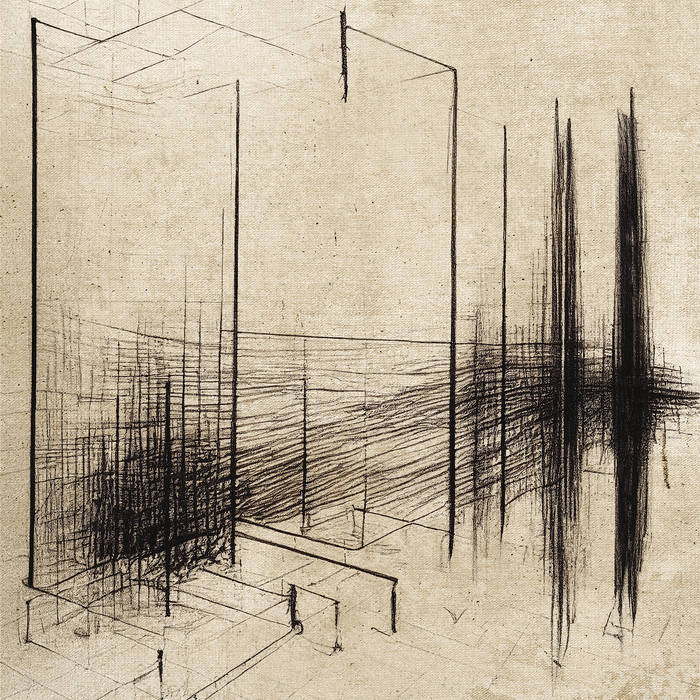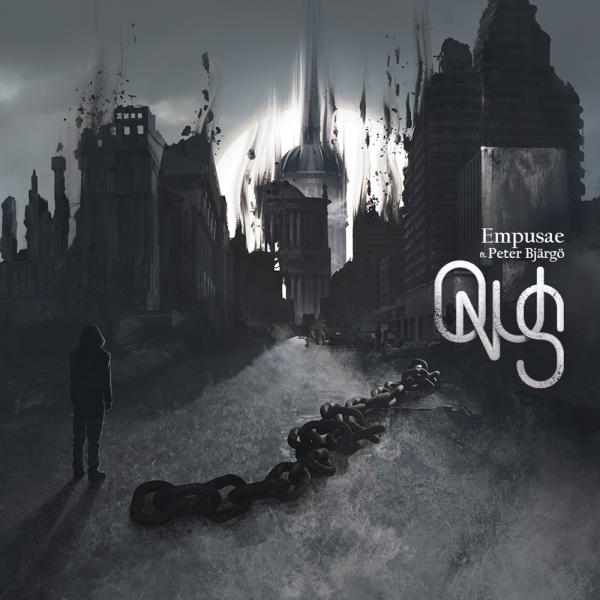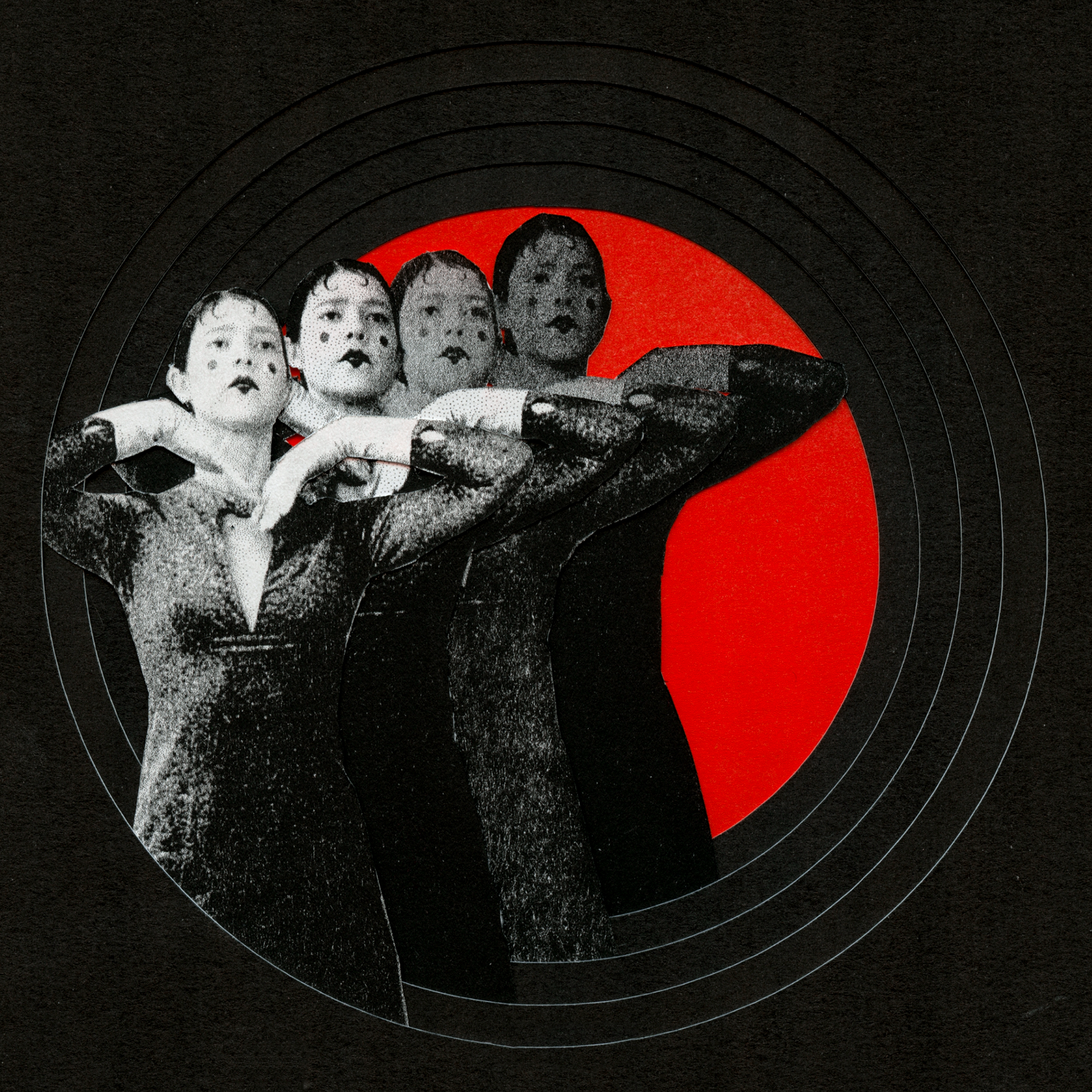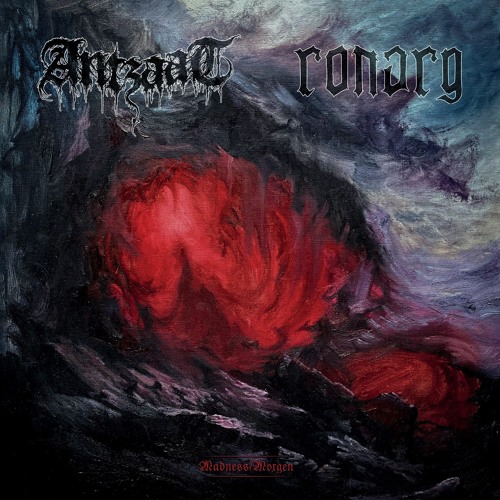Ed Herbers takes listeners on a “nighttime odyssey” with his latest album, Coming of Age. Based in Cincinnati, Ohio, Herbers’ contemplative piano and guitar sojourns evoke strong feelings of nostalgia through a rich compositional style focused on graceful melodies and gossamer soundscapes. The album explores themes of loneliness and angst that unfurl along the journey of a supposed protagonist of a movie that doesn’t yet exist.
Herbers’ discography spans various genres, including video game-inspired Chip Tune music, some unique pirate songs, downtempo Electronic, and, of course, Ambient music. A multi-instrumentalist (including accordion, piano, and guitar), Herbers’ latest efforts seem intent on expanding his Ambient bona fides and Coming of Age builds on his previous works, introducing new textures and sounds, showcasing a growing repertoire of increasing refinement.
From the opening notes of the lead-off track “Another Weekend Gone”, Herbers conjures a pervasive sense of nostalgia. As a mellow beat transforms the track about half-way through, wistful piano strains and delicate rain effects heighten the melancholy atmosphere.
“Up All Night” finds Herbers switching to guitar for the lead instrument, backed by a contemplative bass drone. Though the cover features a cityscape (New York, for those keeping track), this track conjures images of windswept plains and desert bluffs, stargazing in an immense landscape.
Lo-fi beats and a lilting piano melody on “The Universe in Your Pocket” give way to plaintive slide guitar meanderings, evocative of walking alone late at night in an unfamiliar city. This track exemplifies Herbers’ place in the Ambient world: his music would be at home on chill-out playlists and coffee shop compilations, but there is also a sophistication - in themes, instrumentation, and sonics - that would see him equally at home with his more experimental contemporaries.
The Harold Budd-eqsue “Rumination” brings Herbers’ piano skills to the foreground, again fomenting those nostalgic vibes. While it’s the shortest track on the album, it is one of the most haunting, with a melodic tilt suggestive of tragedy, grieving, and acceptance.
With a rolling piano and haunting theremin on “A Room of One’s Own”, one could imagine hearing these tranquil sounds on a rainy Saturday morning in Spring, emanating from an ante-bellum home’s colonnaded porch, ghosts still swirling from last night’s seance, twisting among the willows and vines.
The tense “Sublimation” casts a spell on the listener with subdued xylophone twinkling, a glitchy background drone, and a percolating, blown out synth or guitar. The track fades out with the xylophone subtly coming to the foreground propelling the listener (or our suggested protagonist) further on the journey it set them on.
Heading into darker territory, the feedbacking guitar drone on “Is This Loss?” echoes a heavier sentiment. One of Herbers’ more experimental tracks, this seems to be the turning-point in the suggested protagonist’s journey, when they realize the arc of their story and learn the lesson.
Our protagonist accepts their fate on “Nightwalk” as Herbers plays to his strengths - reverberating piano chords and a vaguely post-rock sense of melodic movement via guitar, invoking comparison to Ambient/Post-Rock stalwarts Hammock.
The uplifting “Liquid Sky” finds our protagonist ensconced in rhythmic piano and acoustic guitar interplay, buffeted by the winds of a lead guitar line, flying through the night, clouds illuminated in the distant sunset. Or is it a sunrise?
The ghostly guitar echoes of closing track “Momentum” percolate in a crescendo that seems like it might just take off like a plane, but ultimately stays grounded as it blends with a complementary and slightly twisted piano swirl. The overall effect is quietly rhythmic and propulsive, like an iced-over stream rushing toward the sea.
Herbers’ protagonist completes a timeless story, having traveled to various locales, if not physically, then via imagination. We can all revel in Herbers’ achievement: with contemplative strokes, he has forged familiar touchstones together with an energy that waxes and wanes in intuitive ways, morphing through varying styles that form a cohesive whole.

